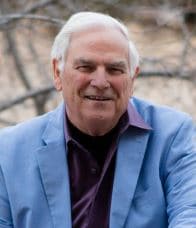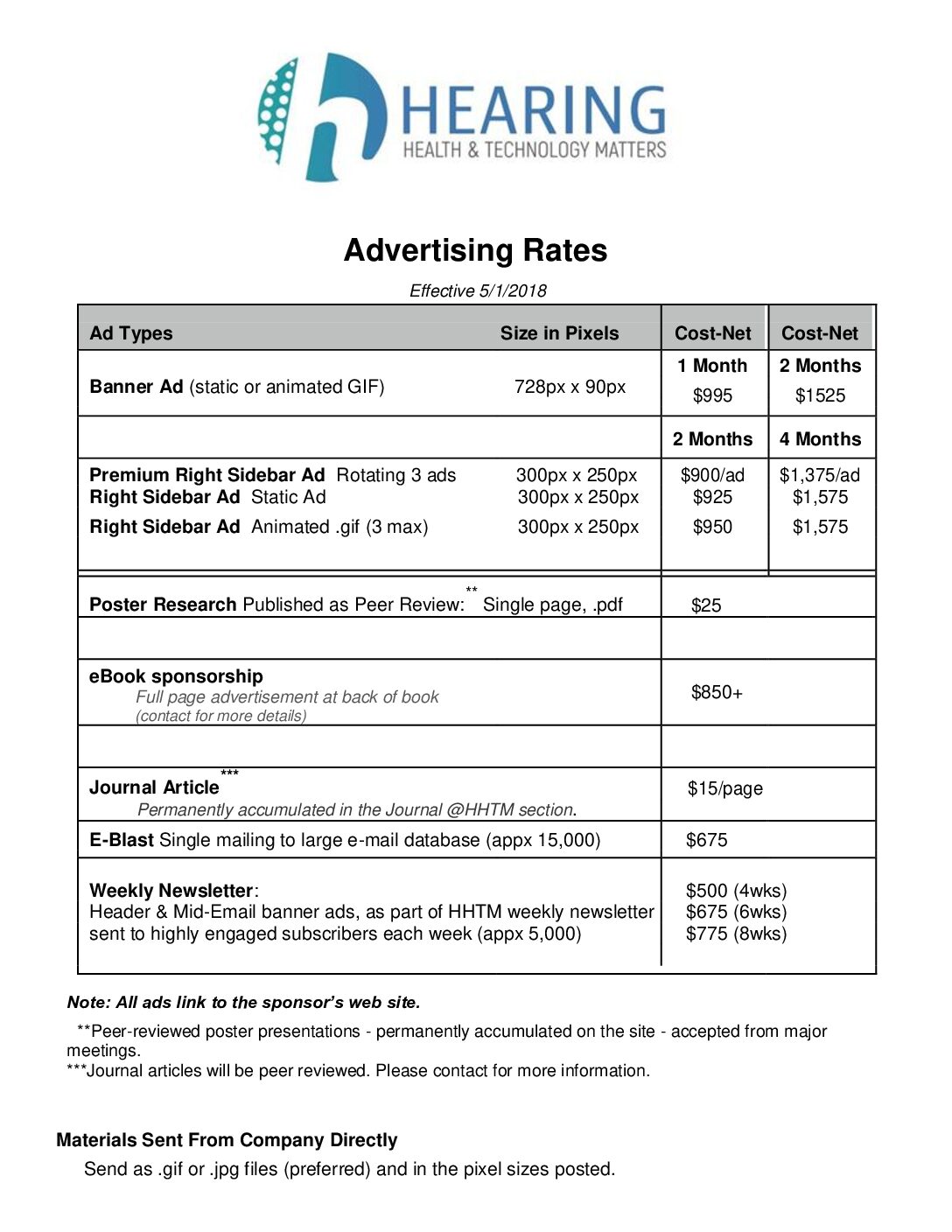by Robert M. Traynor, Ed.D.
There comes a time when audiologists become disenchanted with working for others and decide to consider starting their own private practice.
When this time comes audiologists need to ask the hard questions that go along with the clinical and financial responsibility. Be it a corporation, a limited liability corporation, or a sole proprietorship, working for yourself seems to be an attractive option and often, it is the best decision for the future.
Striking Out on Your Own
Independent professional practice offers numerous advantages–such as being the decision maker, determining the procedures and products for the practice, determining salaries, benefits, setting the schedule, and choosing who to hire and other perks of practice ownership are the easy part.
Becoming a successful entrepreneur requires thorough planning, creativity and hard work often for less money that a salary in the beginning.
Owning a business requires making tough decisions such as what will the practice offer to the community, who gets paid first or last, etc. Businesses will have ups and downs; competitors and economies have cycles that rise and fall, creating uncertainty.
While some individuals would rather avoid uncertainties such as unstable income, job security and other realities of owning a practice, entrepreneurs feed on these issues and look at calculated business risks as challenges and opportunities. Business owners need to make a lot of decisions on their own, based upon their instincts, research and intuition.
In everyday business operations, there is often rejection, financial ups and downs, human resource issues, taxes, operational changes and other hurdles that must be cleared and the owner is the ultimate decision maker. If a person enjoys the independence of making their own decisions and trusts their judgement, then it is possible that independent practice might work for them.
The Risks & Rewards of Independent Audiology Practice
In the current hearing industry climate listening to the naysayers could be, in the words of Dickens, “the best of times and the worst of times”. It might be the best of times as there is a tremendous number of baby boomers that are now showing up in audiology clinics in large numbers and will continue to seek hearing health care over the next 30 years making it the very best time of times to begin a practice. It could also be the worst of times to begin a practice with the looming uncertainty of over the counter (OTC) devices on the horizon, managed care, big box stores, and the forward integration of manufacturers into hearing aid sales, changing government regulations and other unknowns that threaten to change how audiologists’ practice.
In today’s literature and convention speeches is no shortage of those that preach gloom and doom for the field of audiology. Dangers such as these are well known to entrepreneurs, yet businesses are started every day with no assurances, some thrive, and others fail. This is part of the risk and the excitement of business ownership. It takes a special person to listen to the myriad of reasons not to start a business and do it anyway!
So, the first question that must be considered is, “Is running a business really for me”? Carbo (2016) outlines certain traits that lead to success in business, we have tweaked them for the essentials necessary to be successful in an independent audiology practice.
- The Owner Must Be Passionate about their Idea– Successful audiology entrepreneurs aren’t driven by money, they are passionate about their idea of how to practice their profession. They are motivated by a special ability to solve hearing and tinnitus problems, their way. While passion for a new concept, a new method, new product offerings and other progressive business ideas in hearing healthcare; these concepts do not always translate into money. Making a huge salary is always a motivator and might be a reality as the practice takes off but salaries for the owner are usually meager in the beginning. The main focus is survival of the idea and its innovation in hearing healthcare, the money will come later.
- Be Courageous and Thick Skinned – Starting a business and accepting the fact that there will be challenges along the way takes substantial courage, a special trait of successful entrepreneurs. There will be times when being told NO will hurt and it is necessary to continue with the dream of independence anyway. Practitioners will need to persuade patients, employees, potential employees, lenders, possible partners and others. There are sales skills and political interactions that are necessary to facilitate the practice as well as employee harmony. If the new business owner enjoys public speaking, engaging new people and is not offended by disagreements, it is likely that they will be successful in independent practice. Initiating and maintaining a well-researched and thought out business plan is the difference between being a courageous entrepreneur and financial stupidity.
- Being Trustworthy – Building trust is paramount to the success of any business, especially in the hearing industry. Business owners know the value of building trust and in audiology practice it is paramount to repeat business and referrals. No matter if working with a patient, a family, a practitioner or pitching their practice idea to potential investors, convincing a banker to issue a business loan or line of credit; successful entrepreneurs exemplify trustworthiness.
- Be Tenacious – Often audiology practices begin slow and gradually build over time. Successful entrepreneurs are persistent and have that “never give up attitude”. They push through those times of uncertainty and tackle clinical and business obstacles for years on end. Tenacity pays off in the long run, doing what it takes to run a successful practice takes a team spirit of family support and lots of hard work by everyone. Before starting a practice, it is important to have a strong support system in place as practitioners will be forced to make many important decisions, especially in the beginning. Families must be on notice that the business success can temporarily be the highest priority and sometimes important family functions may be missed in order to support the practice.
- Accountability – The practice owner is accountable for everything. They are the last person paid, responsible for everything good and bad that happens in their business. They are also the reaper of the benefits of business ownership if things go wrong, they are the person that must fix the issue, but the great rewards are all theirs. When it comes to accountability in business, successful business owners know the buck stops with them. Taking responsibility and being accountable for financial decisions you make or don’t make is key to a successful practice.
- Flexibility – Part of being responsible for everything means that the practice owner is responsible for all that goes on in the clinic. Everything from the procedures conducted, practice finances, patients concerns, products chosen for use with patients, insurances, salaries, marketing, and all other issues are their responsibility. Audiologists in independent practice are no longer just responsible for clinical and rehabilitative procedures must be willing and prepared to wear many hats and change them often as an entrepreneur. There will be a need to negotiate everything from leases to product prices, contract terms to refunds. Polished negotiation skills will help save money and keep the practice running smoothly. It’s all about being able to adapt, improvise and overcome any of the challenges that must be faced as the business grows into a financially successful operation.
- Be Confident – Entrepreneurs face doubt and fears throughout their entrepreneurial journey, not only from other people but also from themselves. It’s the successful entrepreneurs who have confidence when the going gets tough, and stick with it, that reach the highest level of success. You just know that your approach to practice is correct and stand by your decisions but change your approach when proven wrong.
- Be Self-Disciplined – Being in business for yourself requires discipline, particularly in an audiology clinic if there are not partners or employees to assist in areas where the owner’s skills are lacking. Successful business people are notorious for enhancing their weak areas, staying on task and avoiding distractions. They work hard and long hours and continue to strive to take their business to the next level by studying business practices, such as accounting, marketing, purchasing, finance and other areas specific to their practice.
- Be Decisive – New practice owners need to develop a comfort-level with uncertainty at times. This can be in an area of practice, products, business details, legal or accounting concerns where the entrepreneur must gather as much information as possible, and then make a move. It is disaster to sit around being indecisive and the practice owner is the decision maker that must keep the practice moving forward in a timely and efficient manner.
- Progressive Forward thinking – Successful entrepreneurs all started with a great idea but most importantly had the mindset and vision to see that idea through. They are thinkers, innovators and doers that blaze a trail and the rest of the profession usually follows later. Particularly now, when the climate is changing, a new practice owner must be prepared to stay ahead of the traditional crowd in the procedures, products, and nontraditional services offered. Practice owners need to be able to think of new methods of practice, operation, concepts of business and offer new services and products before the competition, solving problems with new ideas and creativity are essential skills. Independent practitioners see things differently than most employed clinicians. Where employed audiologists see problems, they see opportunities.
References:
- Carbajo, M. (2016). Top 10 Traits of Successful Business People. Small Business Association, Washington DC., Retrieved March 22, 2019.
- Traynor, R. (2018). Management and Economics: Implications for Audiology Practice. In R. Glaser & R. Traynor, Strategic Practice Management, 3rd Edition, San Diego: Plural Publishing.
 Robert M. Traynor, Ed.D., MBA, FNAP has been a clinician, academic, and practice manager for over 45 years. He has lectured on most aspects of the field of Audiology in over 40 countries. Dr. Traynor is the Editor of Hearing International at HHTM and has numerous publications in professional and trade journals and is the co-author of Strategic Practice Management, 3rd Edition, a text used in many universities to train audiologists in practice management. Check out his website at roberttraynor.com
Robert M. Traynor, Ed.D., MBA, FNAP has been a clinician, academic, and practice manager for over 45 years. He has lectured on most aspects of the field of Audiology in over 40 countries. Dr. Traynor is the Editor of Hearing International at HHTM and has numerous publications in professional and trade journals and is the co-author of Strategic Practice Management, 3rd Edition, a text used in many universities to train audiologists in practice management. Check out his website at roberttraynor.com







Independent practice is a tough road, as I know, but its so satisfying, even with the pains. One reason why we break away from working in structured formats is the need to be independent decision makers and taking responsibility for helping the patient perfectly.
The other reason is slavery.
Corporate slavery. You are not treated as human. You are a machine, and limited in thinking, because someone else is making the big bucks, and you now end up with peanuts!
Ultimate satisfaction lies in personal responsibility.
Do you have it? Not in corporate entities certainly.. Either you are genuine professional, or a audiologist looking for a rise in life.